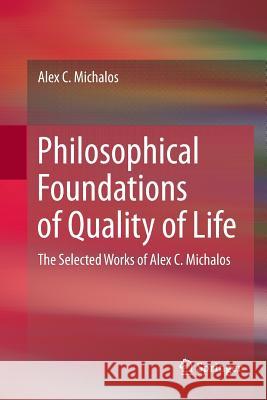Philosophical Foundations of Quality of Life: The Selected Works of Alex C. Michalos » książka
topmenu
Philosophical Foundations of Quality of Life: The Selected Works of Alex C. Michalos
ISBN-13: 9783319844756 / Angielski / Miękka / 2018 / 305 str.
Kategorie:
Kategorie BISAC:
Wydawca:
Springer
Język:
Angielski
ISBN-13:
9783319844756
Rok wydania:
2018
Wydanie:
Softcover Repri
Ilość stron:
305
Waga:
0.47 kg
Wymiary:
23.39 x 15.6 x 1.8
Oprawa:
Miękka
Wolumenów:
01
Dodatkowe informacje:
Wydanie ilustrowane











